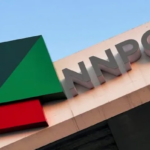They are worried that the plant may not be able to check the bleak future of the business which is presently facing stiff international competition as well as government overbearing influence, making the smallholder farmers to lament daily.
Now when key stakeholders in cocoa business, including international merchants and financiers converged on Calabar few weeks ago, they confirmed that in order to secure the future of the business in the country and allay the fears of the farmers, an international consortium was ready to fund the multi-million naira cocoa processing plant in the state.
Speaking to reporters on the cocoa factory, National chairman of Cocoa Association of Nigeria (CAN), Sayina Riman, and Secretary and Chief Operating Officer of Centre for Cocoa Development Initiatives Inc, Oghenenrobo Adhuze, said, “We have for a long time been working on the possibility of citing the factory in Cross River State to serve the South-South region of the country which has a vast market with the hope that the cocoa market would be salvaged.”
But lamenting over the fate of the business in the country, Chairman of Cross River State branch of Cocoa Association of Nigeria, Nana Alphonsus, raised alarm that too much influence and overriding European decisions on the prices of cocoa will soon kill the business if nothing is done now.
And he is not the only one worried that the future of the business is bleak. Smallholder farmers have equally lamented that lack of technical and political will by the federal government have drastically affected them so that it is doubtful if they can compete or meet international demand.
Ndoma Joseph said he is no longer able to meet increasing statutory demands in view of his little resources. This has discouraged him tremendously.
On his part, Alphonsus was worried about international influence on the business in the country.
He said the Europeans determine prices of cocoa that emanates from the country, stressing that this was dangerous for the growth of cocoa business because local farmers and merchants are left at the mercy of this foreign cocoa cabal.
He said, “Prices are determined by the Euro terminal market. The producer has no influence because he produces what he does not consume and he is compelled to sell even when the market is saturated.”
Supporting Joseph’s worry about statutory charges, the cocoa boss also lamented that the Cross River State government was placing too much taxations on the local farmers and merchants and this was also making the cocoa business not to thrive beyond the local markets.
He maintained that these multiple taxes reduce farmers’ income so that he is not able to increase his production. “These taxes have reduced our members’ economic outlay and may stagnate the nation’s economy in the long run,” he said.
He pleaded with the state government to help the local cocoa farmers make marginal gains.
Nana also called on the federal government to invest more in the cocoa business and provide extension services as these can provide sustainable employment and also become another dependable income earner for the country.
But Sayina Riman maintained that the establishment of the cocoa factory will check these worries as it would have strong affiliation with the World Cocoa Foundation which helps to monitor international pricing.
Riman confirmed that the plan to establish the cocoa factory is at advanced stage. “We have been working on the possibility of citing the factory in Cross River State to serve the South-south region of the country, which has a vast market. In fact, I can confirm that it is coming at the shortest possible time. The plan is at advanced stage. We are working in partnership with federal ministry of agriculture and Chinese firms to concretise the establishment of the cocoa factory in the state.
The CAN boss said the gladdening thing is that the state government was practically open to the plan, adding that they have promised to give desired support.
Speaking for Centre for Cocoa Development Initiatives, Adhuze said that the state is an emerging cocoa power in the international market with tremendous potentials and has impressed the international market.
“We have been watching and we have profound interest in Cross River State because of the huge potentials available in its cocoa sector, the dexterity of its managers and the backing of the state government,” he said.
He said Centre for Cocoa Development Initiative in collaboration with its partners came into the state with galaxy of banks, NGOs and international cocoa experts to study the huge cocoa potentials with a view to actualising the dream of floating the cocoa factory in the state which he said would produce beverages.
Also speaking at the annual cocoa lecture roundtable on Nigeria cocoa value chain, a top management staff of the Central Bank of Nigeria, Jude Uzonwanne, said the apex bank will be all out to support the establishment of the cocoa processing factory in the state.
The CBN official said that the bank will not only support the cocoa factory but would try as much as possible to ensure that farmers in the country are supported to flourish by channeling much needed funds.
“We want to channel more funds to the agric sector because we know that the commercial banks are operating under a deregulated system which may not readily grant desired lending rates. We have also seen the huge potentials in the cocoa sector. This is why we want to partner with the cocoa family.”
 Join Daily Trust WhatsApp Community For Quick Access To News and Happenings Around You.
Join Daily Trust WhatsApp Community For Quick Access To News and Happenings Around You.



